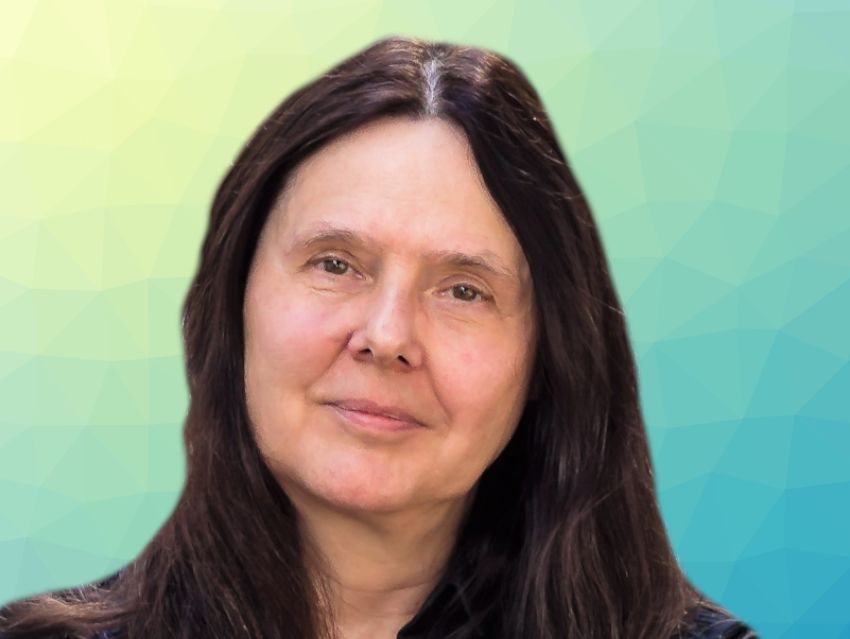Evamarie Hey-Hawkins, University of Leipzig, Germany, celebrates her 65th birthday on July 29, 2022.
Professor Hey-Hawkins’ research interests include organophosphorus chemistry, carborane chemistry, biologically active inorganic compounds, catalysis using mono- and multinuclear transition-metal complexes, and precursors for new materials. She is a pioneer in the field of reactive transition-metal–phosphorus bonds in metal–phosphanido complexes and very committed to the chemical community.
“Time flies when you’re having fun! I have always enjoyed solving scientific problems, but also promoting young researchers. For example, planning the synthesis of new molecules that exhibit interesting and possibly also useful properties, together with my coworkers, is extremely rewarding, especially when the synthesis is successful. Thus, I had and have the pleasure to work with highly talented and motivated junior scientists and to collaborate with dedicated and enthusiastic researchers worldwide, as is also reflected in many of my publications,” Hey-Hawkins explains.
Evamarie Hey-Hawkins studied chemistry at Philipps-Universität Marburg, Germany, where she received her doctoral degree in inorganic chemistry in 1983. After postdoctoral stays at the University of Sussex, UK, the University of Western Australia, Perth, and the Australian National University, Canberra, she completed her habilitation in Marburg in 1988. She served as a Research Associate at the Max Planck Institute for Solid State Research, Stuttgart, Germany, from 1988 to 1990, and as a Guest Researcher (Heisenberg Fellow) at the University of Karlsruhe (now Karlsruhe Institute of Technology or KIT), Germany, from 1990 to 1993.
In 1993, Evamarie Hey-Hawkins joined Leipzig University as Full Professor of Inorganic Chemistry, a position she still holds today. She is the Vice President of the German Society on Boron Neutron Capture Therapy and Chair of the Working Group on Phosphorus Chemistry of the German Chemical Society (GDCh).
Hey-Hawkins has received numerous awards, including the IUPAC Distinguished Women in Chemistry or Chemical Engineering Award in 2013, a Fellowship of the Japanese Society for the Promotion of Science (JSPS) in 2016, the Order of Merit of the Free State of Saxony, Germany, in 2017, the University Medal from the University of Leipzig in 2018, the Leipzig Science Prize in 2019, the Karl Ziegler Prize from the GDChand the Karl Ziegler Foundation in 2021, and two honorary doctorates. She is a Fellow of Chemistry Europe, the European Academy of Sciences and Arts at Salzburg, and the European Academy of Sciences.
Selected Publications
- A High-Valent Ru-PCP Pincer Catalyst for Hydrogenation of Carbonyl and Carboxyl Compounds under Molecular Hydrogen,
S. Mujahed, E. Hey-Hawkins, D. Gelman,
Chem. Eur. J. 2022.
https://doi.org/10.1002/chem.202201098 - Facile synthesis of cyclo-(P4tBu3)-containing oligo- and pnictaphosphanes,
V. J. Eilrich, T. Grell, P. Lönnecke, E. Hey-Hawkins,
Dalton Trans. 2021, 50, 14144–14155.
https://doi.org/10.1039/d1dt02639a - Triple the fun: tris(ferrocenyl)arene-based gold(I) complexes for redox-switchable catalysis,
A. Straube, P. Coburger, L. Dütsch, E. Hey-Hawkins,
Chem. Sci. 2020, 11, 10657–10668.
https://doi.org/10.1039/d0sc03604h - New keys for old locks: carborane-containing drugs as platforms for mechanism-based therapies,
P. Stockmann, M. Gozzi, R. Kuhnert, M. B. Sárosi, E. Hey-Hawkins,
Chem. Soc. Rev. 2019, 48, 3497–3512.
https://doi.org/10.1039/c9cs00197b - Metal–organic frameworks as competitive materials for non-linear optics,
L. R. Mingabudinova, V. V. Vinogradov, V. A. Milichko, E. Hey-Hawkins, A. V. Vinogradov,
Chem. Soc. Rev. 2016, 45, 5408–5431.
https://doi.org/10.1039/c6cs00395h - Redox Control of a Dendritic Ferrocenyl‐Based Homogeneous Catalyst,
P. Neumann, H. Dib, A.‐M. Caminade, E. Hey‐Hawkins,
Angew. Chem. Int. Ed. 2014, 54, 311–314.
https://doi.org/10.1002/anie.201408314 - Pnicogen Bonds: A New Molecular Linker?,
S. Zahn, R. Frank, E. Hey-Hawkins, B. Kirchner,
Chem. Eur. J. 2011, 17, 6034–6038.
https://doi.org/10.1002/chem.201002146
Also of Interest
-
Karl Ziegler Prize for Evamarie Hey-Hawkins,
ChemistryViews 2021.
One of the highest German honors in chemistry for inorganic chemist -
Video: Designing a Molecule on Paper and Finding Ways to Make It,
ChemistryViews 2021.
Evamarie Hey-Hawkins about her research and enthusiasm for chemistry, and what to do with unlimited funds


